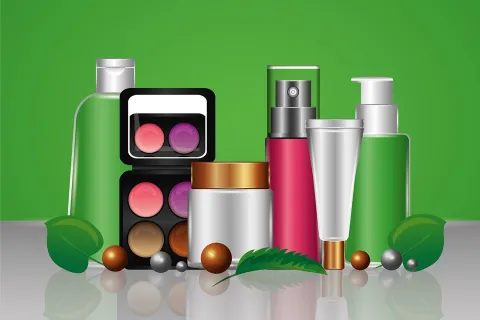
The demand for cosmetics and personal care products is rising exponentially across the world. Because of this rise in demand, trends related to the products, like vegan and organic, are prevailing now more than ever. One such trend is Halal products.
But is there really scope for such products in the market? The answer is a definite yes! According to surveys, the global halal cosmetics market is expected to grow phenomenally in the coming years and is estimated to reach USD 89 billion by 2023. Before getting into details, let’s answer some basic questions first.
What is Halal and Halal cosmetic product?
Halal originates from an Arabic word meaning permissible. According to Islamic laws, products which do not contain any animal product, alcoholic substances and are cruelty-free are known as halal products. Though cosmetics are not consumed directly, they make contact with the skin because of which they should also adhere to the standards of halal.
Companies across the world are taking peculiar interest in the halal cosmetics market, but as of now, the Asian markets, Malaysia and Indonesia, are driving the halal cosmetics industry majorly. These countries are providing ample opportunities for international business and investments for halal products. Countries which are contributing the most to the halal cosmetics market are:
1. Indonesia
According to a survey, 58% of the Indonesian women prefer halal cosmetics over regular cosmetics which makes it a niche market for companies to tap into.
To meet the growing demand for halal cosmetics, companies entering the Indonesian market will have to comply with the Indonesian law no. 33/2014. As per the law, halal certification is mandatory for all the food, beverage, drugs, cosmetics, chemicals (used for human consumption), organic and genetically modified products distributed and sold in Indonesia which will come into effect in 2019. The halal certificates for companies will be issued by Halal Product Assurance Agency (BPJPH), under the jurisdiction of Halal Product Assurance Agency after a thorough inspection.
2. Malaysia
The worth of the Malaysian cosmetic products industry was USD 5 billion in 2017, out of which, the worth of halal cosmetics was estimated to be USD 725 million. Considering this demand, Malaysian standards for halal products have been developed by the authority of the Industry Standards Committee.
The competent authority for halal certification in Malaysia is Jabatan Kemajuan Islam Malaysia (JAKIM). JAKIM is responsible for ensuring the halal status of products at every stage of production and issuing Halal certificates. Countries that wish to enter the Malaysian market have to present a halal certificate from a recognized Foreign Halal Certification Body (FHCB) to JAKIM for verification. The list of valid FHCB is available on the website of JAKIM. Halal certificates issued by JAKIM are valid for two years and have to be reviewed again once they expire.
3. India
India is an attractive market for companies to enter into the halal cosmetics category.
In India, halal certificates are provided by the Halal Certification Bodies (HCBs). Some of the widely recognized HCBs in India are:
- Halal India Private Limited
- Halal Certification Services India Private Limited
- Jamiat Ulama-E-Maharashtra – a State unit of Jamiat Ulama-E-Hind
- Jamiat Ulama-i-Hind Halal Trust
The process of obtaining a halal certificate in India requires three simple steps: application, audit and certification. These steps may differ from agency to agency, though, the process remains same for certification of all types of halal products.
The introduction of halal regulations across the world has created a pool of opportunities for companies to invest in. Besides tapping into new markets, the halal products are also a gateway of tapping into new and niche demographics because of its scope of growth.
Are you planning to obtain halal certification in any Asian market? Consulting a Regulatory expert in cosmetics registration can be helpful. Stay up-to-date. Stay compliant.









